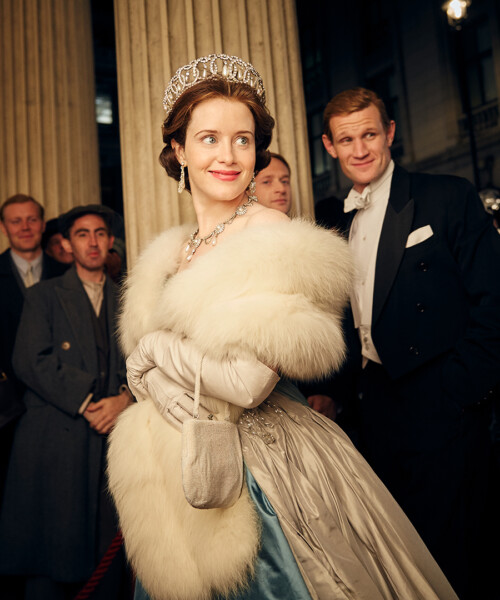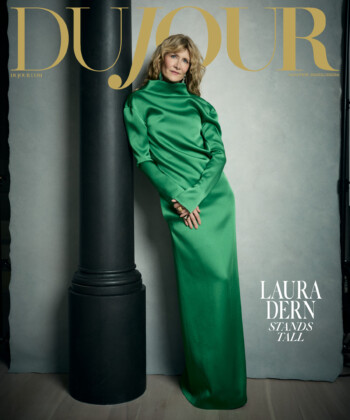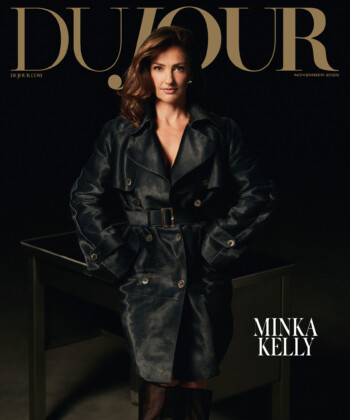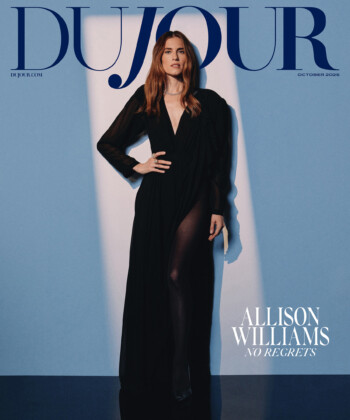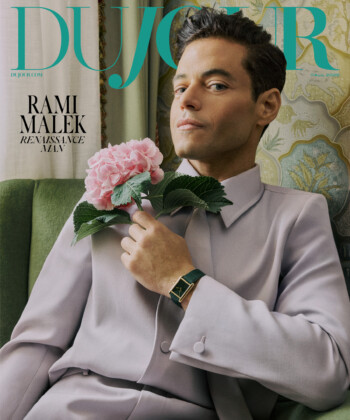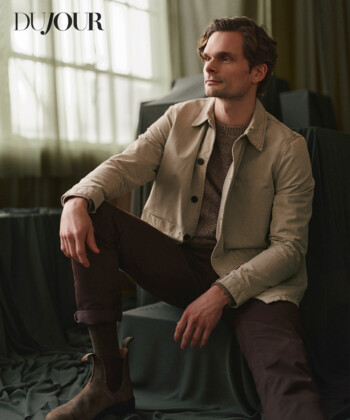It’s late at night. A young man gets out of a car and staggers up the driveway. He stumbles inside and makes his way to the doorway of a bedroom, his figure casting a shadow onto the bed where his wife is sleeping. He says her name quietly, but she doesn’t stir. He turns to go and she opens her eyes, listening to him leave. It’s a scene we’ve seen countless times before, the most familiar depiction of loneliness and resentment gnawing at the tender underbelly of a marriage. But this time, the bedroom is in Buckingham Palace and the couple at odds is Prince Philip and Elizabeth II, the Queen of England.
Such is the intrigue of The Crown, Netflix’s highly anticipated $100 million series; written and directed by Peter Morgan, it takes a historical magnifying glass to the world’s most simultaneously public and behind-closed-gates family. The first season offers an intimate perspective on an early chapter in the life of Britain’s longest reigning monarch: the 1950s, when a 25-year-old Princess Elizabeth ascended the throne to become Elizabeth II. The lavish scale of the production is not lost on Claire Foy, the 32-year-old British actress whose own marquee moment comes in the role of Elizabeth. “It’s a big, big job,” she says.
Perhaps she repeats herself because her sentiments ring true in more ways than one. The conversation about what it means to be a leader and a woman is now being had at a higher pitch than ever before. Elizabeth abruptly inherited the crown in the midst of a declining empire, with tradition at stake in battles both abroad and at home—sometimes all too close to the latter. As The Crown unfolds, we watch Elizabeth, as the head of the Church of England, make the agonizing decision to prohibit her sister Margaret from marrying the man she loves, on the grounds that he is divorced. We watch her continuously resist the Church, Parliament and a waning Winston Churchill (played with bullish brilliance by John Lithgow), only to be beaten into submission by the weight of precedent, ever the monarchy’s defining attribute. But perhaps most centrally, we watch Elizabeth struggle to maintain peace in her marriage with the Duke of Edinburgh (Matt Smith), a headstrong modernist with little patience for convention, who’s been made to give up a career in the Royal Navy and is left thrashing for purpose.
“I think it’s too simple to see [Elizabeth] as a feminist figure who is this really powerful, strong woman trying to juggle being a mother, a queen and a wife,” Foy says of her character, who, as she is pushed further onto the stage of public life, feels her husband slipping away from her, barricading himself inside the smoky lounges of boys’ clubs. “She is trying to juggle those things, but she’s juggling them in relation to her own values and her own sense of self, and her sense of self is as a wife and as someone who supports her husband, not the other way around. I think it’s pretty incredible that she’s able to wake up every morning—that she’s been in Westminster Abbey with a crown on her head and a thick cloak and she’s taken an oath to God that she will do her job to the best of her ability. The interesting thing is to see a person who is between God and her husband and ultimately, God and the Crown are going to win. She’s floundering, I think. She’s massively vulnerable and completely lost.”
One of the show’s most poignant characters is the disgraced Duke of Windsor (Alex Jennings), who famously abdicated the crown in order to marry the American divorcée Wallis Simpson. When making the decision to prohibit her sister’s marriage—a blow from which Margaret arguably never recovered—Elizabeth calls the Duke for words of advice. What he offers is hardly consolation. “We are half people,” he says, “ripped from the pages of some bizarre mythology, those two sides of us—human and Crown—engaged in a fearful civil war which never ends and which blights our every human transaction as brother, husband, sister, wife and mother. I understand the agony you feel. And I am here to tell you it will never leave you.”
The moment is moving: the Duke at a party somewhere far away, speaking from the confines of his banishment, and Elizabeth sitting in the palace, speaking from the confines of her reign. The sentiment is reminiscent of the sort we often find in the mythical stories of superheroes, as they come to grips with power and responsibility they never asked for. But here, the people speaking were (and are) very real indeed.
Photo by Robert Viglasky/Netflix

























